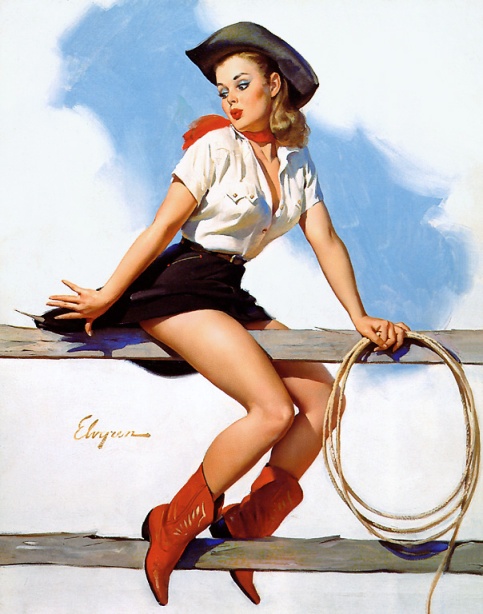Here’s a song that expresses how I feel about returning to this space after the longest hiatus I’ve ever taken in the course of my accidental 8-year career as a blogger. Give it a click, dearly beloved if sorely neglected Madpeople at Your Laptops. It’s very pretty in a shoo-boppy kind of way, and it is, of course, entirely about you:
So, yes, it has been a mighty long time. I wish I could say I followed up that last post with an extended honeymoon in Europe with the Woman Formerly Known as Goose and Never to Be Referred to as My Wife. (Don’t worry — I’ll stick with WFKG as the abbreviated nom de blog for the person to whom I am legally married. She likes sounding like a radio station.) Not surprisingly, our impulsive mid-semester nuptials were followed not by an exotic trip but by the long grind of wrapping up an academic year, a busy, fraught period made especially so for me this year because I was preparing to step down from an administrative position I had held for twelve years and, as it turned out, getting ready to move into a new and substantially bigger administrative position. I start the new job on July 1, but I’m already up to my eyeballs in transition work. The long, languorous summer of 2014 has suddenly turned into a frenetic season of enormous changes at the last minute.
I’m excited but still not sure how to blog about most of what is happening, so let’s just talk about the basement, okay? I’ll figure out the other stuff later and get back to you. In less than three months. I swear.
My study is in the basement. It is a ridiculously large study, because it is the space underneath the great room we added to our humble red brick cape cod during the We Must Be Crazy Renovation of 2003-04. If the first-floor room is a great room, I’ve always thought the basement space should be called the fabulous room. It’s everything you don’t expect a basement to be: light and open and vertically spacious enough that a tall girl can do sun salutes without worrying that she’ll scrape the ceiling with her finger nails. It can be chilly, but we have a cute little Norwegian stove that can produce an astonishing amount of heat when necessary. Sliding glass doors open out onto a patio, which leads out into what fancier people would call the garden and what the neighborhood deer refer to as the hosta bar.
I love my study, but the truth is I’ve neglected it a lot in the last few years. With two different offices on campus (one in my department and one in the program I directed), I didn’t get to spend much time there. The shelves were lined with books I hadn’t looked at since grad school, and every available surface was slowly covered up with stacks of files and papers and memos that I was too lazy to file and for one reason or another reluctant to throw away. Paperless office? Ha! Not mine, kids.
Anyhoo, among the enormous changes occurring this summer are moving out of both of my current campus offices and moving into a third. As I contemplated the logistical challenges of this professional relocation project, I realized the first step in the chain reaction had to be a come-to-Jesus moment with regard to the mess in the basement. My new position completely releases me from teaching in the English department, so the first step was to do some serious culling of those files and figure out where in the hell to put them. I also wanted to clear out shelf space, because I’ve got this nutty idea that the life I’m about to begin is somehow going to afford me time and mental space for working on a book. (I know, I know — but a girl is entitled to the delusions born of a fresh start, isn’t she? Besides, as you may recall, I want to be promoted.)
The home office is by definition a hybrid space, so personal documents and records were a major focus of my reorganizational efforts. After careful consultation with a U.S. government list of tips for managing household records, I convinced myself I could live without bank statements going all the way back to 1999, so I filled two grocery bags with financial stuff and old utility bills and carted them off for shredding. I was rewarded with a large, entirely empty drawer that won’t promptly be refilled with new bank statements because I have finally gone paperless on that front. My personal and professional lives are far less paper-centric than they used to be, so my hope is that the Epic Culling of 2014 will never have to be repeated. (Another delusion? Perhaps, especially if you know that a number of the culled files went into a secret cabinet in a remote, damp corner of the basement. Oh, dear.)
The home office also contains familial archives, which in my case are boxes of photos and other scraps that fell into my lap when we moved my mother into assisted living a couple of years ago. Once I had gotten a handle on the mess in the basement, I let myself dip into that archive, thinking I might find an image suitable for Father’s Day, which is when I intended to publish this post. (So, all this optimism, and I’m still the world’s slowest blogger!) What I unearthed was a lovely, new-to-me photo of my long dead father, looking to be about four years old, intently sipping a Coke with his older sister and my beloved grandmother Jane:
I adore this picture, mostly because one of my favorite things about visiting my grandparents when I was a kid was that the basement stairs were always lined with cartons of Coke in glass bottles. It’s nice to see that the penchant for sugary beverages was deeply rooted in family history.
Why do I bore you with the mundane details of my tossing out and burrowing down and looking back and moving forward? It’s a way, I suppose, of explaining the recent silence here without divulging the details of months that have been stressful, challenging, and in some ways momentous. Cliche as it sounds, facing the mess in the basement was an important part of ending one chapter in my professional life and preparing to begin another. Going through all that paper was an opportunity to reflect on what the last decade or so has been and meant — the students I’ve known, the books I’ve taught, the meetings (oh, lord, the meetings!) I’ve attended, the plans I’ve made and in some cases unmade. The taking stock felt good. It was a way of honoring the recent past, but it was also a way of letting it go. That felt good, too, liberating even. I step into my delightfully uncluttered study now and feel energized rather than overwhelmed.
Clean up, let go, move on: One office down, two more to go. How are your summers going, Madpeople? I hope you’ll stop by to say hello to me, though it’s been such a mighty long time. Shoo-bop, shoo-bop, my baby. Throw something out today. I promise you’ll feel better.















